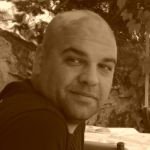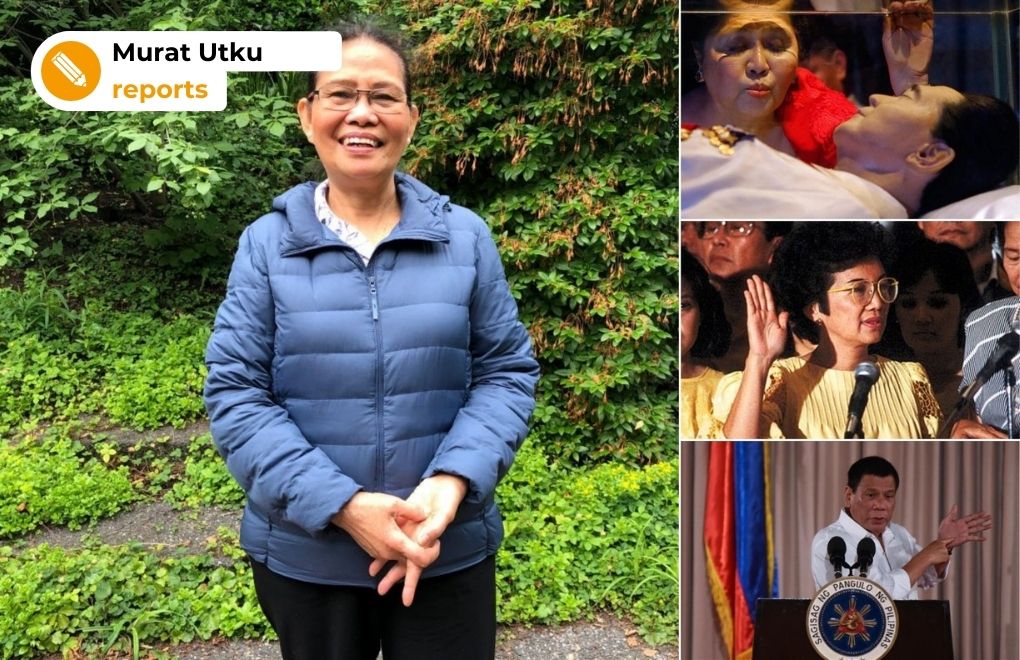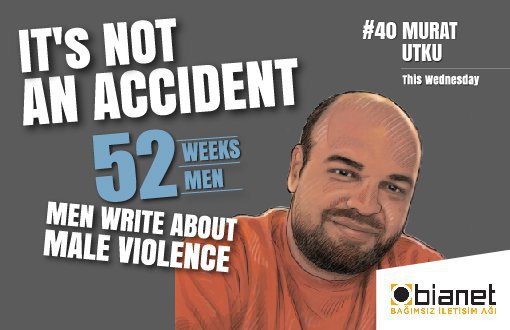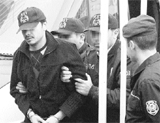Click to read the article in Turkish
From social media trolls to authoritarianism, from accusations of corruption to ghost workers complicit in the crime, from human rights violations committed in the name of fighting against crimes to state of emergency practices...
We have spoken with veteran journalist Ellen Tordesillas from the Philippines, who was among the journalists bringing Ferdinand Marcos' rule to an end with their news. We have talked to her about the Philippines, which was a colony of Spain for 300 years and of the United States of America (USA) for 50 years. We have reached out from Marcos to Rodrigo Duterte.
When you read it, you will say that nothing has changed in the "Atlas of Authoritarian Geographies". Not to speak of "similar affairs"...
We are in the era of populist leaders in the world. European countries, especially with President Viktor Orbán of Hungary, have become part of this political trend. Feeling the pressure of the growing presence of racist, far-right leaders, countries are seeking "middle way" solutions.
Germany has been almost in mourning, so to speak, because Chancellor Angela Merkel, the right-wing "Iron Lady" of an era, is leaving office. Because for a very long time, Merkel has been governing Germany with the caution of a scientist, taking up a political discourse that is not polarizing and assuming a sensitive attitude to racism.
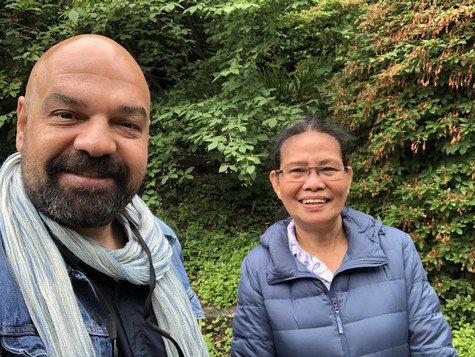
The more authoritarian it gets...
The farther we move to the east, the more pessimistic the picture becomes. The situation in Turkey and Middle East countries is obvious. Lasly, right after the USA's decision to withdraw from Afghanistan, Taliban has consolidated its dominance in the region, causing a new instability.
But today we will talk about another country from south Asia, a country whose political structure is oddly similar to Turkey.
Today, we will talk about the Philippines.
We meet Ellen Tordesillas, one of the most well-known journalists of the Philippines, in one of the most famous parks in Hamburg in northern Germany on a sunny, but chilly day.
Tordesillas is one of the few journalists who greatly contributed to toppling Marcos with a people's movement. Coming to office with an election in 1965 and declaring a martial law to "be a president for life" later on, Marcos ruled the country with an iron fist until the year 1986.
Tordesillas is a strong woman who has contributed to the proliferation of investigative journalism not only in the Philippines but all across Southeast Asia. With the "Vera Files", an organization that she has co-founded, Tordesillas is still engaging in investigative journalism in the Philippines today. "Vera Files" is also working as a fact-checking organization.
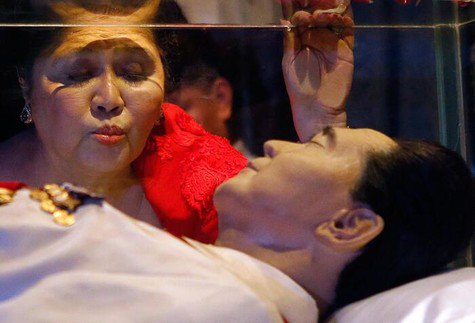
* Ferdinand Marcos died in exile in 1989. His wife Imelda by his dead body - Credit: AA
From Marcos to Duterte
Tordesillas has been struggling against undemocratic, populist and right-wing governments and charismatic leader cult, which have been prevalent in the Philippines since the 1960s, by reporting news.
The media and journalists have been faced with great pressure in today's Philippines as well under the rule of authoritarian leader Duterte.
The journalists in the Philippines have been resisting this pressure as well. Having accumulated a significant amount of experience about this issue over the years, Tordesillas says that Rodrigo Duterte has an aggressive attitude towards the press, as was the case with Marcos.
She notes that Duterte is trying to curtail the freedoms attempted to be improved by Corazon Aquino, or Cory Aquino in short, whose term has been described as the democratic transition period in the country:
"When Benigno Aquino came back to the Philippines in 1983, to lead the opposition against Marcos, he was assassinated at the airport. So, from then on, Cory Aquino led the opposition. It was her only introduction to politics; before, she was just in the background.
"Dictator Marcos was ousted in 1986. Then, she became the president. She restored democracy, that is something that we can credit her for, but she was not so, when it comes to governance...
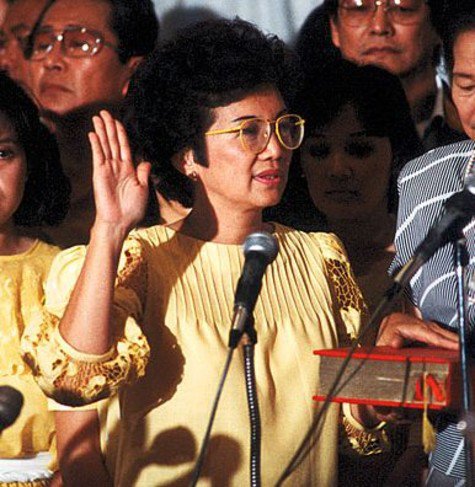
* Corazon Aquino - Former President of the Philippines (1986-1992)
"But the restoration of democracy is important: Press freedom was restored, press became so lively again, but the structure of injustice... Because we were a colony of Spain for 300 years, then the Americans for fifty years. So, structurally speaking, there was something wrong.
"The rich were becoming richer, the poor were becoming poorer. There was something wrong, there was something wrong in the structure of our government. So, we wanted Corry to declare land reform. But she didn't do that. Because she herself comes from the landed group of people."
Shoes of Imelda Marcos
What has remained from Marcos? Hundreds of shoes of his spouse Imelda Marcos have remained as the symbol of the state of emergency, torture, unlawfulness and great corruption.
Her shoes Marcos displayed in a museum for some time. "Her shoes are still in the museum, but it is no longer displayed. I think it is in the storage room," says journalist Ellen Tordesillas, briefly adding:
So, not much substantial reforms, significant reforms, what is introduced aside from restoring democracy... But it is good enough. But then, after Cory Aquino, we had the Ramos administration, maybe people expected too much. We call it the people-powered revolution, when we ousted Marcos, maybe people expected too much of everything. It would be okay after the Marcos dictatorship but it did not materialize and people became frustrated.
President Rodrigo Duterte is now governing the country as harshly as was the case in the Marcos dictatorship.
Just like before, unlawfulness, corruption, the dominance of incompetent staff without meritocracy in bureaucracy and aggravating human rights violations are making the Philippines a country hard to live in.
The current political system and structure in the Philippines have similarities to the authoritarian systems that are getting more and more distanced from democracy, including Turkey. She cannot help emphasizing that voters also bear some responsibility for the situation in the country.
Veteran journalist Tordesillas recounts that following the unsuccessful structural reforms and democratic steps that offered no remedies to any problems, some people said, "We have too much democracy, we need a strong man. Then, Duterte comes." The journalist stresses that the ones who came to power after Marcos, but were unable to meet the expectations also had a share in this tendency of the people.
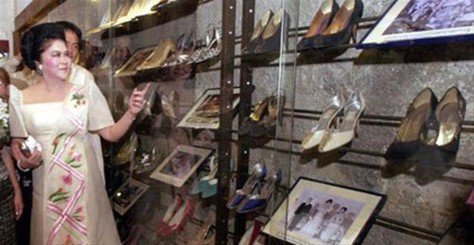
Imelda Marcos Shoe Museum - * Credit: Milliyet
Similar affairs
Considering the similarities with the confessions and allegations of a former minister from Turkey who was wanted for "leading a criminal organization" and later charged with "corruption", the readers from Turkey will obviously not have much difficulty understanding the Duterte regime.
Let's listen to Tordesillas about it:
"During the campaign, maybe Philipinos had enough of feeling betrayed by the people that they trusted. During the campaign, Duterte said, 'I'll kill those who are corrupt.' People clapped. Maybe, that's one thing they wanted. The past presidents, politicians... They felt that they were elitist, they were good, they were educated. They were out of what the people really wanted.
"Here it comes to this: Speaking their language. Duterte said, 'I'm not really intelligent, I barely passed the exams. It took me several years to finish my studies. My study was four years and it would take ages to finish.' He was always a repeater. And he passed the bar because he is a lawyer. 'I barely passed the bar', because he got the lowest score. He got the lowest passing grade. People identify with that.
"He always said, 'I'm not intelligent.' And he speaks the language, the language of the streets. And people liked that. Because people think, 'He's one of us.' They thought, even Duterte said it. Because he was a mayor of a town, he's well known. It's easy to be a strong man in a town.
"And he wanted to transform this to a national level. And people thought that it was possible. So, when he said, because he's a strong man, he has a very good propaganda team. So, they designed the propaganda, he's not an economist, he's not intellectual... He spoke the language of the masses. In the surveys, one of the top concerns of the Philipinos is their livelihood. So, the other candidates addressed the livelihood.
"But, you know, it's a boring subject. Ratios, market rates... It's a boring subject. So, the top tip is peace and order. I think that the people there were very smart, they took that concern. He was saying, 'I'll make the streets safe for all of you. You can walk on the streets without... I'll kill all the drug addicts. I will kill them. The streets will be flooded with blood and turn red.'
"But we didn't know that they would make it literally. And really turned the streets red, painted with all the blood."
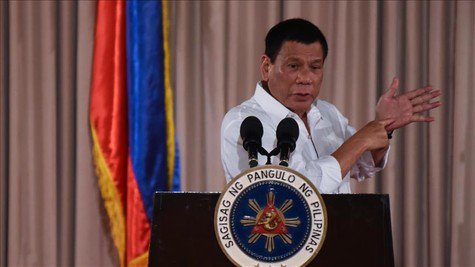
* Rodrigo Duterte, the President of the Philippines since 2016 - * Photo: AA
'Oh my god, this guy will win!'
Tordesillas followed the election campaign in the field. Looking back on those days, she says, "I was covering the campaign and you could really see the people when Duterte spoke. He cursed all these people, promising to kill them, people were really all animated. Photographers loved it because you could see the people really lighting up and really applauding him."
"When I heard those applause and slogans," says Tordesillas, "I said, 'Oh my god, this guy will win. Playing it by the book..."
Since Rodrigo Duterte came into office, he has been targeting not only the drug dealers, but the ones doing drugs as well. In Tordesillas' words, "Duterte said, 'If you are a drug addict and if you are poor, you are also a drug dealer. That is how his mind works." She explains:
There's also the rumor that during Duterte's term as the Mayor of Dabau, he set up a team called "Dabau Death Squad" (DDS). Because, to Duterte, the solution to the problem is 'to kill'. Most of the 30 thousand people killed were poor. Because he said, if you are rich, you have money to finance your vice, so you don't push. That's how his mind works. That's why most killings are done to the poor. His solution to the problem is to kill. The higher the number of killings are, the higher your performance."
Duterte's trolls and social media
Since then, Duterte's team has also been using social media very effectively. Facebook is the most popular social media network in the Philippines. While the other candidates cannot use social media to the fullest, Duterte's team has set up social media networks that have been getting organized like cells, as was the case with the Communist Party in the past.
Tordesillas says, "You have a cell, only ten people, they convey the messages to be used. 'Today we are going to share this message about drugs'. Then, they recruit ten more. We call it a cell.
"And, then, it really became global. He was able to do that. His online network was able to do that. Not only in the Philippines but also abroad, because there are ten million Philinos outside the country, working as domestic helpers, nurses... It was able to reach those people online."
"Is he still powerful," asks Tordesillas, answering her question: "Yes. Because he still enjoys almost 90 percent popularity. He was able to use that even during the pandemic, because he controls them with his propaganda team, they make it appear that he's doing his best."
In fact, two of the members of the DDS have come out and confessed. Now, Duterte is faced with another risky hardship on his part: He may be put on trial at the International Criminal Court in the Hague based on the testimony of these two people. The informants also talked about how the payments were made for the crimes that they themselves were involved in.
Tordesillas spoke with one of these informants. What the informant said during the interview was striking:
He said that in order to pay him, he was asked to give ten names to be included in the payroll of the city government. So, he got a telephone directory, he got the names and he submitted the names. So, those names were put in the payroll, so every payday, he gets the money, those are ghost employees, right?"
International Criminal Court
The commission that carried out an audit found some unexplained figures in the city government's expenditure.
There was also an uncorroborated increase in the accounts of Duterte at a private bank. But where was this uncorroborated and regularly growing money coming from? The money was possibly coming illegally.
In short, it means that people's money was used for this. But there were things preventing people from pursuing it further.
The investigation about the killings related to the drug war is still ongoing. The government of the Philippines has withdrawn from the International Criminal Court as what they did from July 1, 2016, when Duterte came into office, to March 16, 2019 started to be investigated.
That being the case, the Philippines has become the second country after Burundi that has withdrawn from the International Criminal Court. But the Court is still investigating the war crimes. Five government officials have confessed that 5 thousand people were killed in this period.
Journalist Ellen Tordesillas notes that this number is estimated to hit 30 thousand today; for this reason, the ongoing investigation is an important and positive development for the Philippines.
Two countries
The sun is fading away in Hamburg's sky, it is getting a little chillier now. We are actually talking about several other issues with Ellen Tordesillas, from the ongoing effects of the Spanish and American cultures in the country to the politics' heavy pressure on daily lives...
And we are also discussing the governments of the Philippines and Turkey, which are responsible for anti-democratic practices and taking the risk of defying international conventions and the courts that they are subject to as per these conventions...
Having devoted her life to journalism and unveiling the truth with years of experience, Ellen and I are leaving the park to have some coffee.
After this interview, I now feel more burdened with being a part of millions of people who do not know what will happen in their country tomorrow and who are condemned to uncertainty.
I turn to her and say, "There is a saying very commonly used on social media in Turkey these days, do you know what?" She asks, "What?" I answer, "Geography is destiny." We smile. (MU/APK/KÖ/SD)




